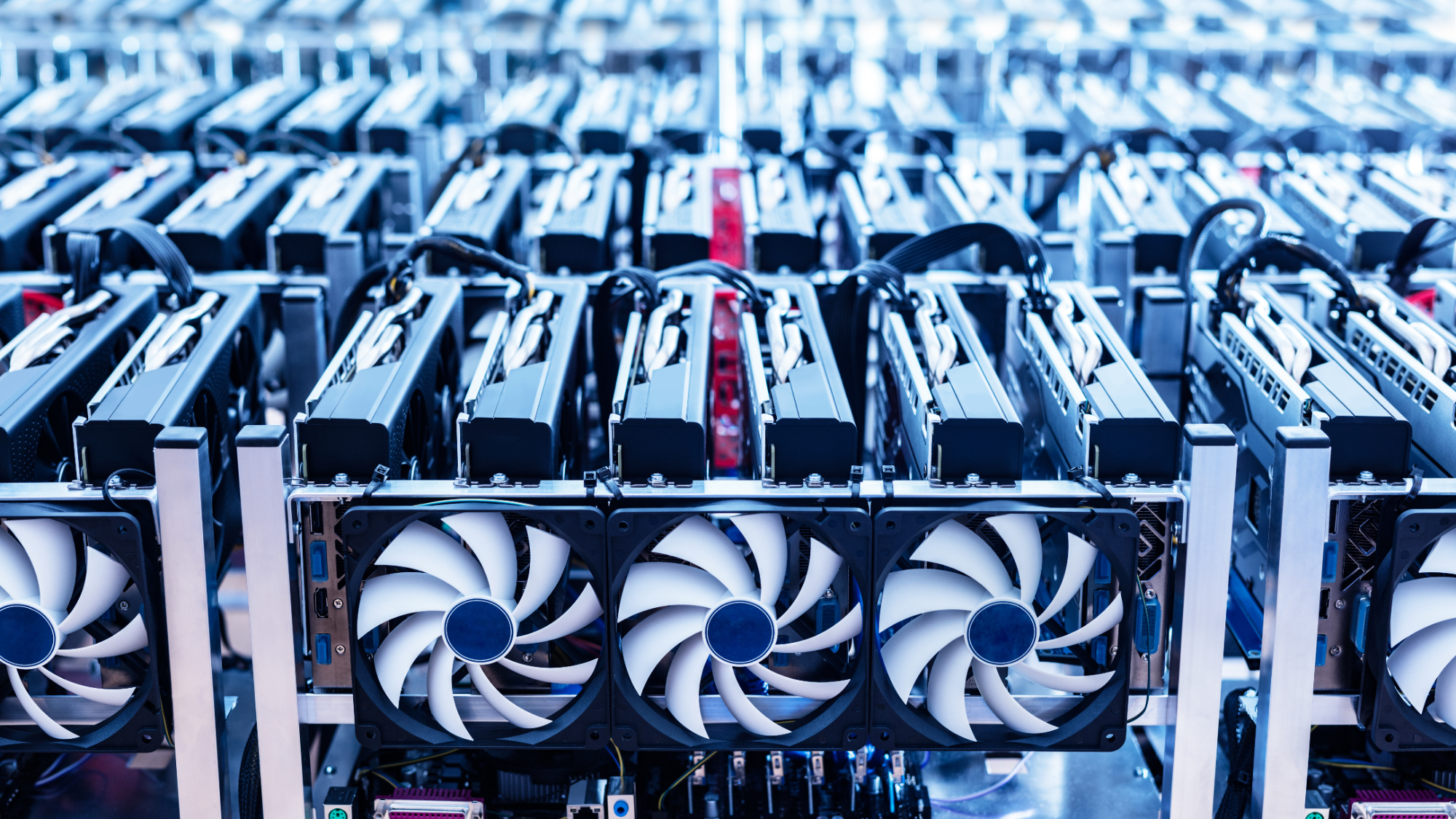
Some large-scale crypto miners are looking for new ways to make money as demand for GPU-powered mining operations has significantly decreased over the last year. Some are hoping to turn that processing power elsewhere: to help train AI.
According to Bloomberg, some crypto mining companies have pivoted their business towards high-performance computing (HPC) services for customers working with AI. And they're doing pretty well with it: Hut 8 Mining, for instance, told Bloomberg that its HPC business had generated approximately $16.9 million from its AI clients. Hive BlockChain bought $66 million worth of GPUs from Nvidia for its HPC endeavors and is projected to make about $98 million in revenue by the end of 2024.
Even Nvidia boss Jensen Huang predicts that AI models will become a million times more powerful within the next decade and expects to see the rise of "AI factories worldwide" to meet the ever-growing workload demands. And the amounts of money on the table are staggering: For example, it costs OpenAI somewhere between $700,000 to $1 million daily to operate its AI chatbot, ChatGPT.
However, converting a crypto-mining operation to high-performance computing for AI can be challenging and costly, because it often requires a significant hardware upgrade. Nvidia’s H100 Tensor Core GPUs, made for AI deep learning tasks, can cost over $10,000 each.
Finding the cash to finance those conversions might be a problem since some of the biggest crypto lenders struggle to get paid from Bitcoin miners, often getting stuck with loads of useless mining rigs instead of the actual money they're owed. This means lenders might not be so quick (or able) to dole out loans to miners eager to change direction.
Some RTX 40-series GPUs, like the RTX 4090, are capable of performing serious AI tasks, but it's a relatively small part of the whole. Bitpro Consulting told Bloomberg that just 5% to 15% of existing crypto mining GPUs could be retooled for AI since only some high-end GPUs are suitable for AI work.
Even if former crypto miners successfully pivot towards AI deep learning operations, most AI clients tend to go for larger data services providers like AWS or Microsoft Azure, which have the staffing, data center infrastructure, and support to handle the needs of their data-hungry AI technology.







